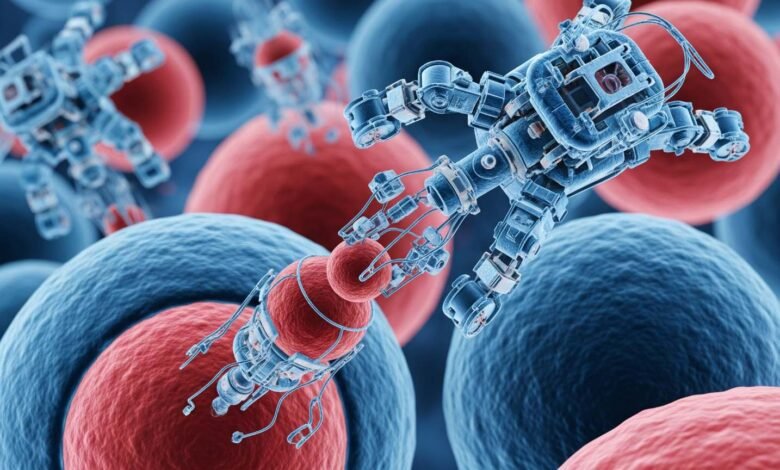Clarithromycin-loaded Nanoparticles Enhance Antibacterial and Anticancer Performance

Researchers have successfully developed clarithromycin-loaded albumin-based nanoparticles (CLA-BSA NPs) that promise to revolutionize the delivery of antibacterial and anticancer drugs. This innovative drug delivery system, detailed in a study published in Pharmaceutics on May 31, 2025, showcases enhanced therapeutic efficacy for clarithromycin, a widely used antibiotic already known for its diverse medical applications.
Clarithromycin (CLA) is a broad-spectrum antibiotic commonly prescribed for respiratory, skin, and soft tissue infections. Beyond its antibacterial properties, extensive research has also highlighted its anticancer activity, particularly when used in combination with conventional therapies. However, traditional macrolide antibiotics like clarithromycin face challenges such as poor hydrophilicity and acid instability, which limit their absorption into the bloodstream and reduce their overall bioavailability. These drawbacks necessitate the development of more efficient drug delivery methods to ensure the drug reaches its target site effectively and minimizes bacterial resistance.
The study, led by Walhan Alshaer and Fadwa Odeh, along with a team of researchers from institutions including the Cell Therapy Center at The University of Jordan and Al-Ahliyya Amman University, focused on overcoming these limitations. They successfully synthesized CLA-BSA NPs using a desolvation method, optimizing the nanoparticles’ physicochemical properties to improve drug delivery.
The findings are highly encouraging. The CLA-BSA NPs demonstrated robust drug release in reductive environments, crucial for targeted delivery within the body. More importantly, in laboratory tests, these nanoparticles exhibited significant anticancer activity against the A549 lung cancer cell line, while showing minimal toxicity to normal human dermal fibroblast (HDF) cells. This selective action is a critical factor in developing treatments with fewer side effects.
Furthermore, the antibacterial performance of the CLA-BSA NPs was rigorously assessed against common bacterial strains. The nanoparticles proved highly effective, particularly against Bacillus cereus, showing an impressive minimum inhibitory concentration (MIC) of 0.032 µg/mL. They also demonstrated strong activity against Staphylococcus aureus (MIC of 0.12 µg/mL). These results underscore the potential of CLA-BSA NPs to combat bacterial infections more efficiently.
This research highlights the significant promise of CLA-BSA NPs as a versatile and effective drug delivery system, enhancing both the anticancer and antibacterial efficacy of clarithromycin. The successful encapsulation of clarithromycin within bovine serum albumin nanoparticles offers a new pathway for improving therapeutic outcomes, reducing required drug doses, and minimizing systemic exposure, paving the way for more targeted and efficient treatments in the future.
Reference Source: Alshaer, W., et al. “Clarithromycin-Loaded Albumin-Based Nanoparticles for Improved Antibacterial and Anticancer Performance.” Pharmaceutics 2025, 17, 729. https://doi.org/10.3390/pharmaceutics17060729




